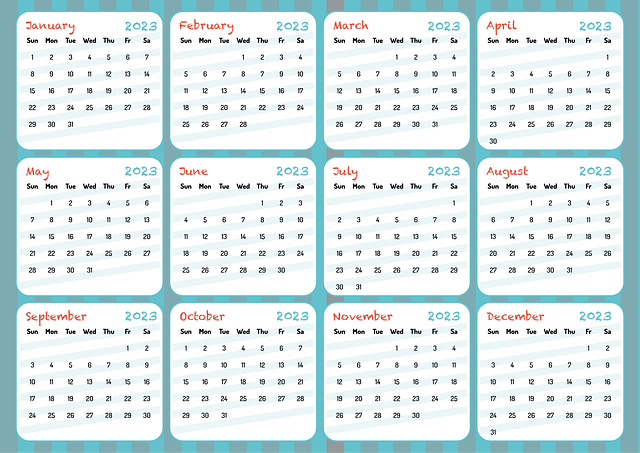Beginners in South Africa's economy should first grasp their financial situation by collecting essential documents, calculating net worth, and reviewing financial history. Setting clear goals—short-term and long-term—is crucial, with a budget tracking expenses and savings for discipline. Exploring investment opportunities, understanding market dynamics, and diversifying portfolios are key steps in achieving financial aspirations outlined in a Financial Planning Checklist for South Africa.
“Embark on your financial journey with our comprehensive beginner’s checklist for South Africa. Navigating the complexities of financial planning can seem daunting, but understanding your situation, setting clear goals, and building a budget are crucial steps.
From gathering essential documents to exploring investment opportunities, this guide equips you with the tools to manage your money effectively. Discover how to calculate your net worth, define short-term and long-term goals, track expenses, and diversify your portfolio, tailored specifically for South Africa’s financial landscape.”
- Understanding Your Financial Situation: Gather Essential Documents and Calculate Your Net Worth
- Setting Clear Financial Goals: Define Short-Term and Long-Term Objectives for Your Money
- Building a Budget: Track Expenses, Allocate Funds, and Save Consistently
- Exploring Investment Opportunities: Understand the Market, Choose Suitable Vehicles, and Diversify Your Portfolio
Understanding Your Financial Situation: Gather Essential Documents and Calculate Your Net Worth

Understanding your financial situation is a crucial first step in any financial planning journey, especially for beginners navigating the complexities of South Africa’s economic landscape. Start by gathering essential documents such as bank statements, investment portfolios, tax returns, and loan agreements. These documents provide a clear picture of your current financial health. Calculate your net worth by subtracting your total liabilities from your total assets. This simple calculation offers a basic understanding of your financial position and is an integral part of any Financial Planning Checklist for South Africa.
By reviewing these documents and numbers, you’ll gain insights into your income, expenses, savings, investments, and debts. This knowledge will empower you to set realistic financial goals, identify areas where adjustments can be made, and make informed decisions as you embark on your financial planning journey.
Setting Clear Financial Goals: Define Short-Term and Long-Term Objectives for Your Money

When embarking on your financial planning journey in South Africa, setting clear goals is the first step to achieving a secure future. A financial planning checklist for beginners should start by defining both short-term and long-term objectives. Short-term goals might include building an emergency fund, saving for a down payment on a property, or funding a trip abroad. These are typically achieved within a year or two and serve as milestones to keep you motivated.
Long-term financial planning involves setting targets like retirement savings, investing in your children’s education, or purchasing a second home. These goals require patience and consistent saving over an extended period, often stretching beyond 10 years. A Financial Planning Checklist South Africa should encourage individuals to be specific with their objectives, consider their risk tolerance, and create a realistic plan to bridge the gap between short-term aspirations and long-term dreams.
Building a Budget: Track Expenses, Allocate Funds, and Save Consistently

In South Africa, as with anywhere, building a budget is a fundamental step in your financial planning checklist. To begin, track your expenses to gain an accurate understanding of where your money goes each month. This involves recording all income and expenditures for a set period, typically a month. Once you have this picture, allocate funds accordingly, ensuring that fixed costs like rent or mortgage payments are covered first, followed by variable expenses such as groceries and entertainment.
Savings should be a priority too. Allocate a portion of your income each month to savings accounts, ideally emergency funds for unforeseen circumstances and long-term savings for goals like buying a home or retirement. Consistency is key; set up automatic transfers from your checking account to savings to avoid tempted spending. This disciplined approach will form the backbone of your financial planning in South Africa, setting you on track towards financial stability and security.
Exploring Investment Opportunities: Understand the Market, Choose Suitable Vehicles, and Diversify Your Portfolio

Exploring investment opportunities is a crucial step in your financial planning journey in South Africa. It involves understanding the local market dynamics and identifying suitable avenues to grow your wealth. Start by researching and educating yourself about various investment options such as stocks, bonds, mutual funds, and property. Each option has its unique risks and rewards, so take the time to understand which ones align with your financial goals and risk tolerance. The South African market offers diverse sectors to invest in, from technology and finance to resources and real estate, each presenting different opportunities for growth.
When choosing investment vehicles, consider your long-term objectives and time horizon. Diversifying your portfolio is a key strategy to manage risk effectively. Spread your investments across various asset classes and industries to ensure that your financial portfolio is well-rounded. This approach not only minimises the impact of market volatility but also provides a chance for growth in different economic conditions. Remember, a well-diversified portfolio can be a solid foundation for achieving your financial aspirations as outlined in your South Africa financial planning checklist.
Embarking on your financial planning journey in South Africa is an exciting step towards securing your future. By understanding your current situation, setting clear goals, budgeting wisely, and exploring investment options, you’re well on your way to achieving financial stability and growth. This beginner’s checklist equips you with the tools to navigate the financial landscape confidently. Remember, consistent effort and adaptability are key; regularly review and adjust your plan as your circumstances evolve. With dedication, you can turn your financial dreams into a reality in South Africa.







